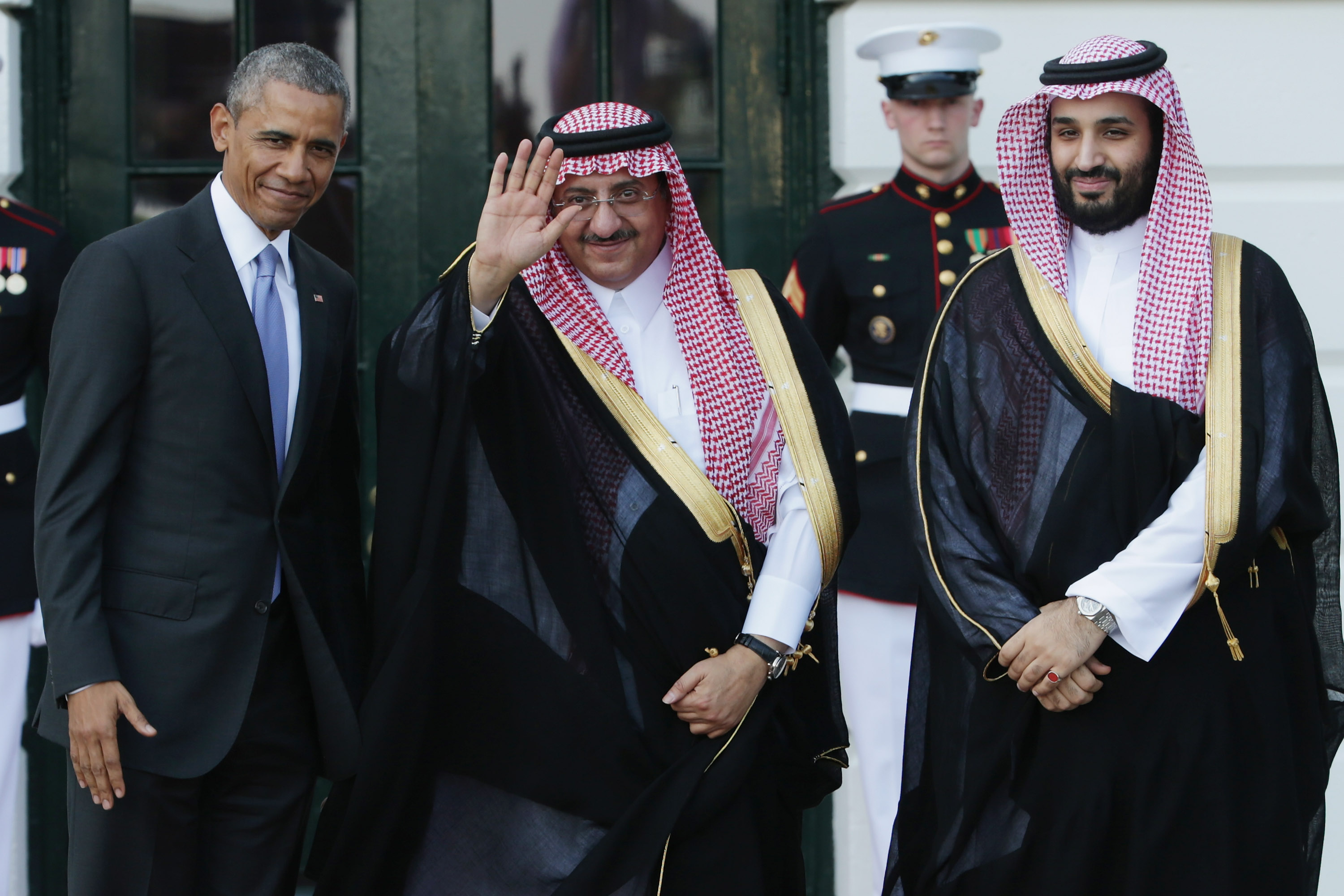As Camp David summit opens, Saudis threaten Iran nuclear arms race


On Thursday, President Obama is holding a high-level summit at Camp David with Persian Gulf Arab countries, seeking to assuage their concerns about the prospective nuclear deal to limit Iran's nuclear capabilities. Obama is expected to offer some increased military aid, but nothing like a guarantee of their safety like the U.S. has obligated itself to with South Korea and Japan.
The officials from the Gulf Cooperative Council nations — Saudi Arabia, Qatar, United Arab Emirates, Kuwait, Oman, and Bahrain — are not expected to leave with their concerns assuaged. In fact, some leaders are saying a deal would force them to start their own nuclear programs. "We can't sit back and be nowhere as Iran is allowed to retain much of its capability and amass its research," one Arab leader meeting with Obama told The New York Times.
Former Saudi intelligence chief Prince Turki bin Faisal has been publicly more explicit with the threats, The Times notes. "Whatever the Iranians have, we will have, too," he said recently in South Korea. Accusing Obama of going "behind the backs of the traditional allies of the U.S. to strike the deal," Prince Turki said that the deal apparently "opens the door to nuclear proliferation, not closes it, as was the initial intention."
The Week
Escape your echo chamber. Get the facts behind the news, plus analysis from multiple perspectives.

Sign up for The Week's Free Newsletters
From our morning news briefing to a weekly Good News Newsletter, get the best of The Week delivered directly to your inbox.
From our morning news briefing to a weekly Good News Newsletter, get the best of The Week delivered directly to your inbox.
Saudi Arabia and its neighbors are years behind Iran on nuclear technology, and they have only two real options for obtaining nuclear reactor parts: North Korea and Pakistan, says David Sanger at The New York Times. "It is doubtful that any of the American allies being hosted by Mr. Obama this week would turn to North Korea," he says, but "Pakistan is another story":
The Saudis have a natural if unacknowledged claim on the technology: They financed much of the work done by A.Q. Khan, a Pakistani nuclear scientist who ended up peddling his nuclear wares abroad. It is widely presumed that Pakistan would provide Saudi Arabia with the technology, if not a weapon itself. [New York Times]
That should make for an interesting day at Camp David.
A free daily email with the biggest news stories of the day – and the best features from TheWeek.com
Peter has worked as a news and culture writer and editor at The Week since the site's launch in 2008. He covers politics, world affairs, religion and cultural currents. His journalism career began as a copy editor at a financial newswire and has included editorial positions at The New York Times Magazine, Facts on File, and Oregon State University.
-
 British warship repels 'largest Houthi attack to date' in the Red Sea
British warship repels 'largest Houthi attack to date' in the Red SeaSpeed read Western allies warn of military response to Iranian-backed Yemeni rebels if attacks on ships continue
-
 Houthi rebels claim Red Sea ship attacks
Houthi rebels claim Red Sea ship attacksspeed read Iran-backed Yemeni group vows to escalate aggression towards Israel-linked vessels in revenge for Gaza war
-
 Israel plans next phase of Gaza war as first hostages released
Israel plans next phase of Gaza war as first hostages releasedSpeed read After four-day ceasefire 'we will not stop' until destruction of Hamas, says Israel
-
 Mob storms Russian airport 'looking for Jews'
Mob storms Russian airport 'looking for Jews'Speed Read Plane from Israel surrounded by rioters chanting antisemitic slogans after landing in Russia's Dagestan region
-
 Tuberville's military promotions block is upending lives, combat readiness, 3 military branch chiefs say
Tuberville's military promotions block is upending lives, combat readiness, 3 military branch chiefs saySpeed Read
-
 Ukraine's counteroffensive is making incremental gains. Does it matter in the broader war?
Ukraine's counteroffensive is making incremental gains. Does it matter in the broader war?Speed Read
-
 US commissions first-ever Navy ship in a foreign port
US commissions first-ever Navy ship in a foreign portSpeed Read
-
 British spy chief, Wagner video suggest Prigozhin is alive and freely 'floating around'
British spy chief, Wagner video suggest Prigozhin is alive and freely 'floating around'Speed Read


